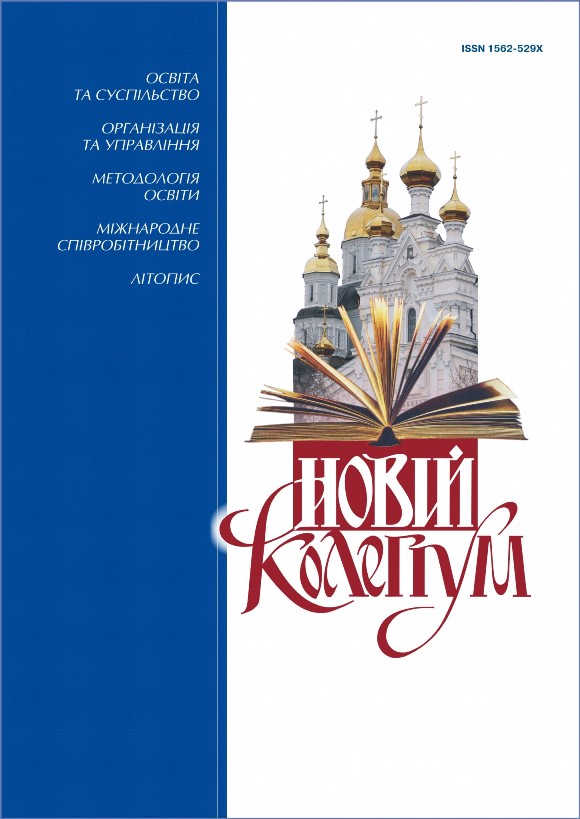Use of modern psychotraining technologies in the framework of the recovery period of extreme detail profile specialists
DOI:
https://doi.org/10.30837/nc.2021.4.45Keywords:
recovery period, social and psychological training, professional activity, rescuer, specialists of risky professions, anxiety, neuropsychological stability, stress, psychological stability, maladaptive mental statesAbstract
The article considers the problem of the recovery period of activity of specialists of risky professions after their performance of tasks on purpose. In solving this problem, it was suggested to use socio-psychological training.
Within the framework of this issue, a study was conducted on the basis of the educational and scientific laboratory of extreme and crisis psychology of the research center of the National University of Civil Defense of Ukraine. Rescuers took part in it, were directly involved in the elimination of the consequences of emergencies.
In order to restore the psychological stability of rescuers, specialists of the training and research laboratory of extreme and crisis psychology of the research center of NUCDU developed a socio-psychological training with a clear structure that corresponds to the professional activities of hazardous professions, including rescuers.
During the study of the influence of psychological training technologies on the personality of specialists of emergency rescue units, a methodical algorithm was used: the method of observation, questionnaires, the method of color choices, the method of "Anxiety Research" Ch.D. Spielberger (adapted version by YL Khanin), method "Forecast-2", statistical methods.
As a result of the study, the positive impact of socio-psychological training on the process of restoring the psychological resilience of specialists in high-risk occupations in the post-disaster period was proved.
References
Екстремальна юридична психологія в діяльності персоналу органів внутрішніх справ України : наук.-практ. посібник / О. М. Бандурка та ін. Харків : Вид-во Нац. ун-ту внутр. справ, 2005. 319 с.
Вачков И.В. Психология тренинговой работы: Содержательные, организационные и методические аспекты ведения тренинговой работы. Москва : Эксмо, 2007. 416 с.
Екстремальна психологія: підручник ; за ред. О. В. Тімченка. К. : ТОВ «Август Трейд», 2007. 502 с.
Кім К. В. Особливості розвитку стресостійкості майбутніх правоохоронців у процесі професійної підготовки : дис. ... канд. психол. наук.: 19.00.09. Харків : Ун-т цивіл. захисту України, 2008. 170 с.
Корольчук М.С., Крайнюк В.М. Соціально-психологічне забезпечення діяльності в звичайних та екстремальних умовах. К. : Ніка Центр, 2006. 580 с.
Лефтеров В. О. Особистісно-професійний розвиток фахівців екстремальних видів діяльності : дис. … д-ра психол. наук. : 19.00.09. Донецьк : Донецьк. юрид. ін.-т Луганськ. Держ. ун-ту внутрішніх справ, 2008. 428 с.
Миронець С. М. Негативні психічні стани та реакції працівників аварійно-рятувальних підрозділів МНС України в умовах надзвичайної ситуації : дис. … канд. психол. наук.: 19.00.09. Харків : Ун-т цивіл. захисту України, 2007. 164 с.
Райгородский Д. Я. Практическая психодиагностика. Методики и тесты : учеб. пособие. Самара : БАХРАХ-М, 2003. 672 с.
Сидоренко Е. В. Методы математической обработки в психологи. Санкт Петербург : Речь, 2006. 350 с.
Denkova E., Zanesco A., Jha A., Rogers S.L. Is Resilience Trainable? An Initial Study Comparing Mindfulness and Relaxation Training in Firefighters. 2020. URL: https://www.researchgate.net/publication/338637904_Is_Resilience_Trainable_An_Initial_Study_Comparing_Mindfulness_and_Relaxation_Training_in_Firefighters (дата звернення 11.12.2020).
Deppa K.F. Resilience Training for Firefighters: A Proposed Approach.2015 URL: https://www.researchgate.net/publication/304088421_Resilience_Training_for_Firefighters_A_Proposed_Approach (дата звернення 11.12.2020).

